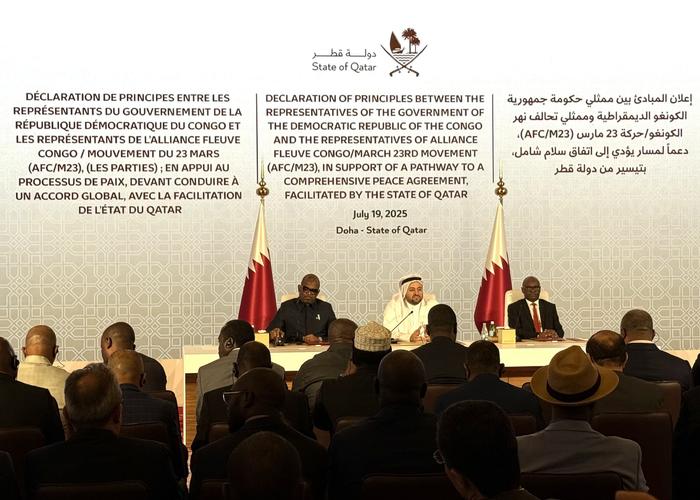
On July 19th, local time, under the mediation of Qatar, the Government of the Democratic Republic of the Congo (DRC) and the anti-government armed group “M23 Movement” signed a principle statement in Doha, the capital of Qatar, to end the conflict.
The parties immediately ceased hostilities and pledged to continue negotiations, ultimately reaching a comprehensive peace agreement.
A consensus was reached on the establishment of a permanent ceasefire mechanism as well as the restoration of state governance in the eastern region of the DRC following the signing of the peace agreement.
Since March this year, the DRC Government and representatives of the “M23 Movement” have held multiple rounds of talks in Doha. On April 23rd, the DRC Government issued a statement saying that after the dialogue in Doha, both parties had reached a consensus on promoting a ceasefire and peace process. Since July 9th, they have engaged in their fifth round of dialogue in Doha, aiming to reach a broader ceasefire agreement.
Recently, tensions in the eastern region of the DRC have escalated sharply, with the “M23 Movement” launching offensives in North Kivu and South Kivu provinces among others. The conflict has resulted in significant civilian casualties and displacement. The DRC, United Nations officials, and some Western countries have accused Rwanda of supporting the “M23 Movement.” However, Rwanda denies these allegations. On June 27th, Rwanda and the DRC signed a peace agreement in Washington, USA, promising to end the 30-year conflict and promote peace and stability in the Great Lakes region of Africa. (CCTV Reporter: Zhao Fangyuan)